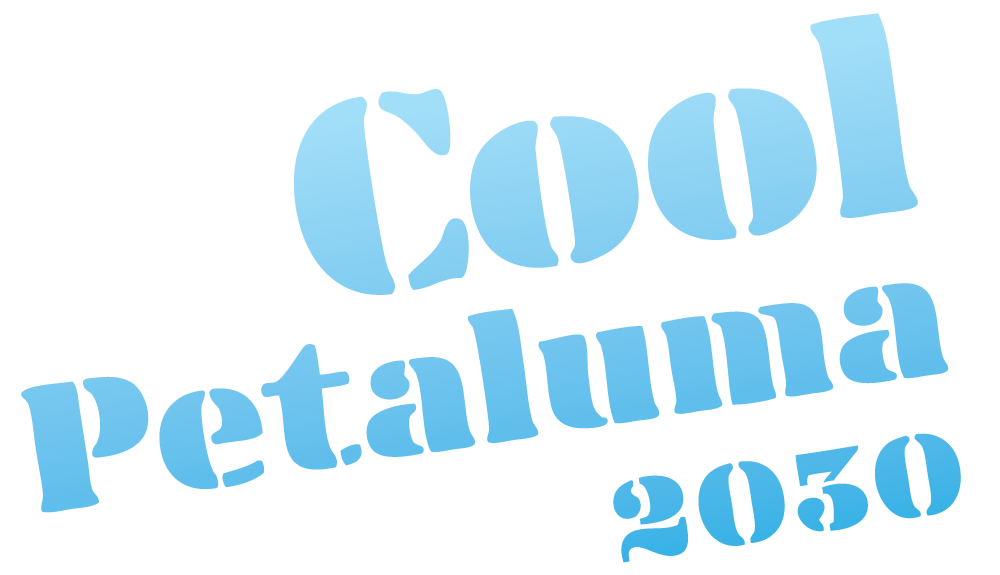Grow gardens
Grow gardens
Why?
Why grow gardens and trees? Too many reasons to list! For you, the benefits include increased exercise, improved nutrition, time in nature, reduced stress, and social connection. Planted wisely and well, gardens and trees also conserve water, provide habitat for pollinators, increase biodiversity, and capture carbon.
Sheet mulch lawns
Using a layered system, sheet mulching is a quick and sustainable way to produce healthier, more drought-tolerant gardens. Use recycled and other materials such as cardboard, newspaper, and bark or wood chips to lock in moisture, improve the quality of your soil, and block weed seeds.
The City of Petaluma offers a turf conversion program for residents, which includes free sheet mulching supplies and delivery, as well as irrigation conversion kits. Go to Mulch Madness to learn how to qualify. Qualified customers can also set up a free garden consultation with the Garden Sense program to help discuss a plan for a water-wise mulched landscape.
And if you've thought about replacing your lawn with artifical turf as a "green" alternative, think again. These plastic patches of fake grass may not need water, but they have many drawbacks: they are made out of forever chemicals that add to our pollution load, create soil dead zones when we need more habitat, and they get dangerously hot in the summer when we look to our yards to cool us off.
Families Advocating for Chemical and Toxics Safety (FACTS) team measured temperatures of the ground across Petaluma on a hot day. The heat island effect of artificial turf is real:
171 degrees at Lucchesi Field - 71 degrees hotter on plastic turf than natural grass
163 degrees at Casa Grande HS Field - 67 degrees hotter on plastic turf than natural grass
162 degrees at E. Washington Fields - No comparison available because no natural grass exists up there, it's all plastic
So let the ground do what it does best by helping it grow life instead.
Daily Acts: Lawn Gone: Sheet Mulching 101 with Annie Silverman
City of Petaluma: Mulch Madness
California Wild Gardens: How to Sheet Mulch over Dead Lawn
CalRecycle: Benefits of Compost and Mulch Use
Grow habitat & pollinator gardens
You can create an inviting habitat for pollinators and other species by making conscious choices in your garden. Different colors, fragrances, heights, and blooming times attract different types of pollinators – any animal or insect that helps plants grow new fruit and seeds.
Plant native species and consolidate similar plants in groups of at least three to attract birds, bees, butterflies, and other pollinators. Also, don’t go to an extreme with garden clean-ups. Why not? Because brush piles can provide shelter for birds and insects, and ripe seeds from spent flowers provide food for many birds.
UC Master Gardener Program of Sonoma County: Protect & Encourage Wildlife
Children’s Museum of Sonoma County: 4 Ways You Can Help Pollinators in Sonoma County
Grow a community garden
Community gardens beautify neighborhoods, help bring neighbors closer together, and provide easy access to healthy food. They also offer space for people who wouldn’t otherwise have a place to garden. And community gardens are proven tools to reduce neighborhood crime, especially when developed in vacant, blighted lots. Check out iGrow Sonoma’s handy guide for getting started with a community garden.
iGrow Sonoma: Community Garden Start-up Guide
Fresh Food Connect: Community Gardens: Grow With Neighbors
Plant & maintain street trees
Did you know that ReLeaf Petaluma has a goal to plant 10,000 native trees with the help of the community? You can help by becoming a tree steward! The potential benefits are plentiful:
Absorption of greenhouse gas emissions
Drought and fire resistance
Increased biodiversity
Shade and reduction of heat islands
Improved mental health
Reduced toxins in air and water
Increased property values
ReLeaf: Become a Tree Steward!
City of Petaluma: List of Approved Street Trees

